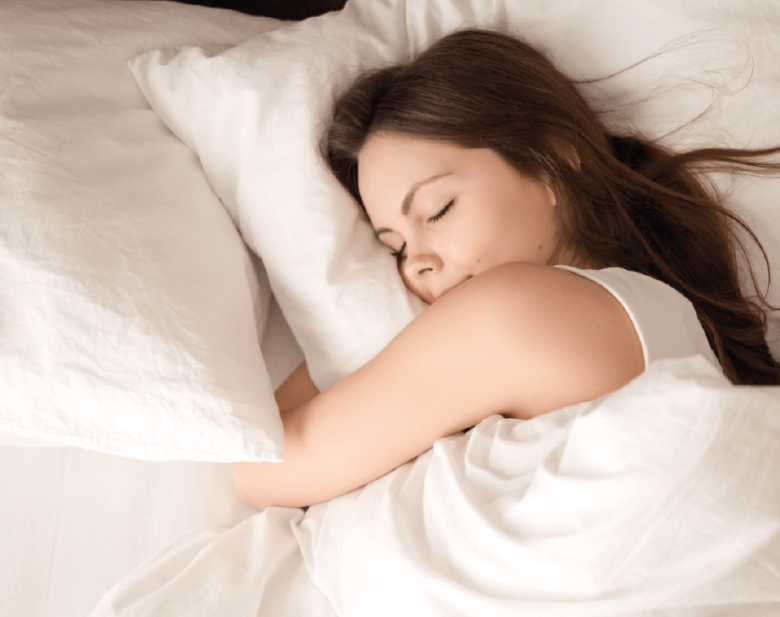Sound sleep is essential for health, yet millions of people struggle with it. Insufficient sleep can impact cognitive function, immunity, mood regulation, and physical recovery. Lack of sleep not only leads to morning drowsiness but can also contribute to weight gain, elevated stress hormones, and decreased productivity. Modern lifestyles can disrupt sleep, exacerbate these problems, and increase stress levels. However, proven interventions for healthy sleep can improve the quality of your sleep and boost your daytime energy. This guide covers evidence-based methods for better sleep and a refreshed morning.
Understanding the Science of Sleep
Sleep cycles last 90 minutes and alternate throughout the night. These cycles include light sleep, deep sleep, and REM sleep, each with its own biological function. Deep sleep repairs tissues and strengthens the immune system, while REM sleep consolidates memories and processes emotions. Your circadian rhythm, an internal clock that responds to light, regulates these cycles. Intermittent sleep schedules or excessive light exposure can disrupt your body’s sleep signals. Understanding these systems can help explain why some nights are more restful than others and how you can optimise your sleep architecture.
Preparing for Sleep
The temperature, lighting, and noise level in your bedroom can affect sleep quality. A cooler temperature helps the body naturally cool down during sleep, so research recommends keeping your sleep environment between 15°C and 19°C (59°F and 66°F). Blackout curtains or a sleep mask help support melatonin production, which is stimulated by darkness. Noise pollution can disrupt your sleep cycle, so using a white noise machine or earplugs can help. Your mattress and pillow should be aligned with your spine and adjust to your sleeping position. Removing electronic devices, work items, and clutter from your bedroom can strengthen your brain’s connection to sleep as you drift off.
Practicing Mindfulness and Relaxation
Stress and racing thoughts can hinder your sleep. Progressive muscle relaxation helps your body distinguish between stress and relaxation by automatically tensing and relaxing muscle groups. Deep breathing can slow your heart rate and lower cortisol by activating the parasympathetic nervous system. Even 10 minutes of meditation can help your mind observe your thoughts without dwelling on them, preventing nighttime wandering. Imagining peaceful scenes or the joy of success can calm racing thoughts. Research shows that regularly using these techniques can improve both sleep onset and sleep quality.
The Role of Diet and Exercise
The timing and content of meals influence sleep quality through physiological mechanisms. Eating large meals within three hours of bedtime can force your digestive system to function during resting hours, disrupting your sleep. Because caffeine has a half-life of 6-8 hours, drinking coffee in the afternoon can disrupt your sleep, even if you’re not feeling anxious. Alcohol can cause drowsiness, but it can also disrupt the structure of your sleep, shortening REM sleep and causing you to wake up more often. Regular exercise can lower stress hormones, increase sleep-promoting adenosine, and regulate your circadian rhythm. While vigorous exercise within four hours of bedtime can be energising, a well-planned exercise programme can help you achieve your sleep goals.
Addressing Sleep Disorders
Chronic sleep problems may indicate a sleep disorder that requires professional diagnosis and treatment. Even with adequate sleep, sleep apnoea can interrupt breathing, disrupt sleep, and cause daytime fatigue. Restless leg syndrome (RLS) causes leg pain and an urge to move (especially when lying down), making it difficult to fall asleep. Worry, sadness, or poor sleep habits often cause trouble falling asleep, staying asleep, or waking up early. Sleep studies, continuous positive airway pressure (CPAP) therapy, and targeted medications can address symptoms if they are present. For severe sleep disorders, self-treatment is often ineffective, so professional advice is necessary.
The Impact of Technology on Sleep
Using electronic devices before bed emits blue light, which reduces melatonin production and delays sleep. Cell phones, iPads, and televisions keep your brain active when it should be resting. Stress from social media, news, and work can increase your cortisol levels and alertness. Using digital devices at least an hour before bedtime activates your body’s natural melatonin production, calming your brain. If completely avoiding blue light is unavoidable, wear glasses with a blue light filter or set your device to limit your exposure. A phone base outside your bedroom that doesn’t need to be charged can reduce late-night browsing and notifications.
Regular Sleep Schedule
For optimal sleep quality, your circadian rhythm requires consistent sleep and wake times. Going to bed and waking up at the same time every day, even on weekends, strengthens your body clock and makes it easier to fall asleep. Strategic use of lights and adjusting your sleep schedule can mitigate the effects of shift work and travelling across time zones. Strategic napping can partially compensate for sleep loss due to irregular work schedules, but sleeping in on weekends cannot. Long naps can make you drowsy and disrupt your sleep, but a 20–30 minute nap can improve your focus. A regular bedtime routine can remind your body that it’s time to sleep and activate your automatic sleep response.
Sleep Supplements and Natural Remedies
Some natural chemicals, when used correctly and combined with a healthy sleep routine, can improve sleep quality. Melatonin supplements can reset your circadian rhythm and help with jet lag and shift work, but timing and dosage are crucial. Inadequate magnesium intake can lead to sleep problems, so taking magnesium supplements may be beneficial. Additionally, chamomile tea exerts a mild sedative effect by binding to sleep and relaxation receptors in the brain. Valerian root is used as a sleep aid, although research results are inconsistent. L-theanine in green tea can relax the mind and body without causing drowsiness and can improve sleep quality before bed. Always consult a doctor before taking supplements, especially if you are taking medications or have a medical condition.
FAQs
1. How many hours of sleep do adults need for optimal health?
Sleep needs vary depending on genetics, age, health status, and lifestyle, but most people need 7–9 hours of sleep per night. Seven hours of deep, uninterrupted sleep is generally more restful than nine hours of fragmented sleep.
2. Can sleeping in on the weekends make up for lost sleep?
Sleeping in on weekends can help, but it doesn’t fix chronic sleep loss and can disrupt your circadian rhythm. A regular sleep pattern is better than trying to catch up on an irregular sleep pattern.
3. What if I can’t fall asleep within 20 minutes?
Get out of bed and read or stretch until you’re exhausted. This helps your brain associate bed with sleep, instead of restlessness and anxiety.
4. Can sleep tracking devices and apps improve your sleep?
Sleep trackers can reveal sleep patterns and trends, but they aren’t always reliable. Use them as a guide and pay more attention to how you feel when you wake up.
5. When should I see a sleep specialist?
Consult your doctor if you have difficulty falling asleep or staying asleep for more than three weeks, if you snore loudly and have interrupted breathing, if you are extremely tired during the day despite getting enough sleep, or if your sleep problems significantly interfere with your daily life and quality of life.




